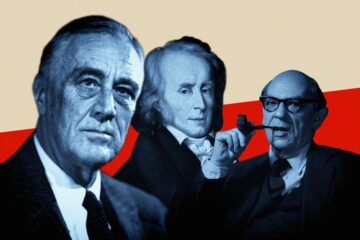Samuel Moyn and Becca Rothfeld in the Boston Review:
 Becca Rothfeld: The first question I wanted to ask is how to improve liberalism. Despite some misreadings of Liberalism Against Itself as illiberal, it’s very much not an anti-liberal book. It’s a book that’s disappointed with the direction that postwar liberalism has taken, but it’s also cautiously optimistic about the liberal tradition’s ability to redeem itself.
Becca Rothfeld: The first question I wanted to ask is how to improve liberalism. Despite some misreadings of Liberalism Against Itself as illiberal, it’s very much not an anti-liberal book. It’s a book that’s disappointed with the direction that postwar liberalism has taken, but it’s also cautiously optimistic about the liberal tradition’s ability to redeem itself.
Tallying up your objections to Cold War liberalism in the book, I noticed that it was possible to construct a better ideal of postwar liberalism by imagining a sort of mirror image of the failed liberalism you describe. Could you say a little bit about the positive conception of liberalism glinting in the background of the book?
Samuel Moyn: This book is a series of portraits of liberals in the middle of the twentieth century, and I take a pretty deflationary view of the politics that they wrought. I claim that they introduced a rupture in the history of liberalism. I do imply that they’ve left us, at least in part, in our current situation, intellectually and even practically. I don’t know if I would agree that I’m optimistic about liberalism: I would say that there are resources from the past to draw on before Cold War liberalism that could be used to argue for a new liberalism. But I certainly think that we need to give tough love to liberals, not just for their abuse of their own tradition, but also because they seem recurrently incapable of confronting some nagging criticisms of their platform.
More here.
